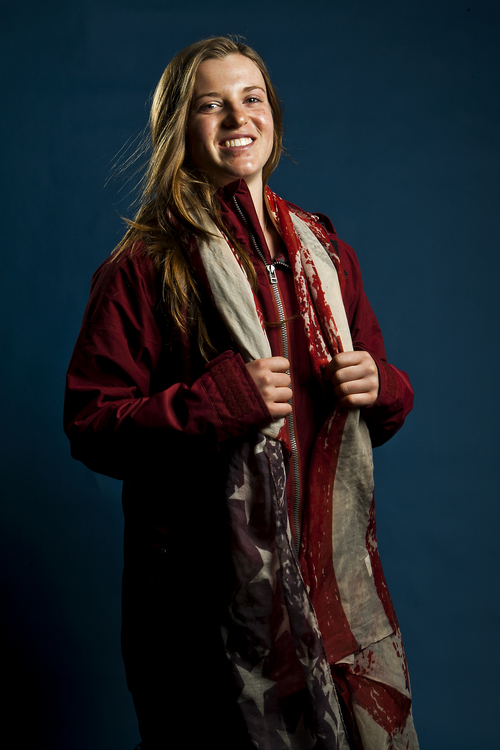This is an archived article that was published on sltrib.com in 2014, and information in the article may be outdated. It is provided only for personal research purposes and may not be reprinted.
I am filled with gratitude and excitement at the chance to represent my country in women's snowboarding here in Sochi. It is every athlete's dream to compete at the Games. But I worry for the future of my sport.
Just over the course of my own life, I have seen a serious change in our winters, which will only accelerate as carbon emissions continue to rise. Snowboarding is one of the newest Olympic sports, but it's already in jeopardy from warming winters.
The science confirms what I and my fellow athletes have witnessed in the decade that I've been practicing this sport: The last ten years were the hottest on record, with winter temperatures rising two to four times faster than summer temperatures. I believe that if we fail to take immediate action on climate change, winter sports from skiing to pond hockey will be at risk of melting away.
Every year, winters in Utah and other areas across the U.S. are getting warmer and drier. The weather is not as reliable as it used to be; it's either extremely cold or unseasonably warm. These conditions make it pretty challenging to reliably snowboard in Utah. There is also more variation in snowfall. Sometimes we get huge amounts; other times, we go months without seeing a storm cloud. One thing is as clear as a sunny winter sky: There have just been too many recent bad winters to write off as a weather glitch.
As a recent piece in the The New York Times pointed out, the Western half of the U.S. stands to lose anywhere from 25 to 100 percent of its snowpack by 2100 if we don't curb our carbon emissions. The snowpack in Park City could disappear completely. A recent study by the University of Waterloo in Ontario has concluded that, out of the 19 sites that are suitable to host the Olympics, only 10 will be viable by 2050. By the end of this century, there may be as few as six.
But we're also feeling the effects right now. Winter sports events and competitions are canceled due to warm weather or lack of snow, or they're moved to higher, albeit still slushy, locations. Manmade snow has become the standard in our industry, whether it's for a small tournament or even the Olympics. Utah resorts like Park City and Snowbasin have become dependent on artificial snowmaking to prolong the ski season.
But making and importing snow is a temporary solution. It does not solve the larger issue of warming winters. It's also not viable in the long term, since manmade snow adds an additional expense to an already pricey pursuit. Climate change aside, how will the U.S.'s legacy of snowboarding continue if young people can't afford to do it in the first place?
I love this sport. I love being outside on fresh snow in the cold air, and it's hard to imagine not being able to go outside and enjoy it. We have to start talking about the connection between climate change and winter sports before our beloved pastimes disappear altogether.
We should all work towards a more sustainable future both by taking small actions to reduce our carbon footprint in our own lives. But it's just as important to demand that our political leaders take action on climate change, for all our sakes, and for the future of winter sports.
Just like hot chocolate with marshmallows, family ski days and snowball fights, speaking out is part of our American heritage. So be brave, and talk about climate change with your friends and neighbors. Reach out to Utah politicians and tell them to take action on climate change.
Every four years, the world comes together to celebrate our athletes at the Olympics. Why don't we put the same level of dedication and spirit into solving climate change?
Arielle Gold is a member of the U.S. Olympic Snowboarding team that is competing in Sochi.



